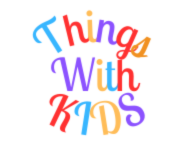A growth mindset is one of the most powerful tools a child can develop. When kids believe they can improve through effort and persistence, they become more resilient, motivated, and open to learning. But how can parents nurture a growth mindset in their children? This guide provides practical strategies to help your kids embrace challenges and thrive.
What is a Growth Mindset?
Dr. Carol Dweck, a psychologist from Stanford University, introduced the concept of growth mindset, which suggests that abilities and intelligence can be developed through dedication and hard work. This contrasts with a fixed mindset, where children believe their talents and intelligence are set in stone.
✅ Growth Mindset: “I can improve with practice.” ❌ Fixed Mindset: “I’m just not good at this.”
By encouraging a growth mindset, you help your child build confidence, perseverance, and a love for learning.
Why a Growth Mindset Matters for Kids
Encouraging a growth mindset helps children:
✔ Embrace challenges – They see difficulties as opportunities to learn rather than obstacles.
✔ Develop resilience – They bounce back from failures and keep trying.
✔ Enjoy learning – They focus on the process rather than just the outcome.
✔ Increase self-motivation – They take charge of their own learning journey.
✔ Handle criticism positively – They see feedback as a tool for improvement.
Now, let’s explore ways to nurture a growth mindset at different ages.
How to Foster a Growth Mindset by Age Group
👶 Toddlers (Ages 1-3)
At this stage, kids are naturally curious and eager to try new things. Help them develop persistence and confidence.
✔ Praise Effort, Not Just Success – Instead of saying, “You’re so smart,” say, “I love how you kept trying!”
✔ Encourage Exploration – Let them explore new activities without fear of failure.
✔ Teach the Power of “Yet” – If they say, “I can’t do it,” respond with, “You can’t do it yet.”
✔ Model Persistence – Show them how you keep trying when faced with a challenge.
👦 Preschoolers (Ages 4-6)
At this age, kids are more aware of their abilities and may start comparing themselves to others. Encourage perseverance.
✔ Normalize Mistakes – Teach them that making mistakes is part of learning.
✔ Tell Growth Mindset Stories – Read books where characters learn from challenges.
✔ Celebrate Small Wins – Recognize their progress, not just big achievements.
✔ Encourage Problem-Solving – Ask, “What could you do differently next time?”
🧒 School-Age Children (Ages 7-12)
Kids at this stage may start fearing failure or giving up too quickly. Help them reframe challenges.
✔ Encourage Grit – Teach them to keep trying even when things get tough.
✔ Discuss Famous Failures – Share stories of successful people who overcame obstacles.
✔ Use Growth Mindset Language – Say, “Your brain grows when you learn something new!”
✔ Help Them Set Goals – Guide them in setting small, achievable goals.
✔ Turn “I Can’t” Into “I’ll Try” – Encourage positive self-talk.
🧑 Teenagers (Ages 13-18)
Teens often face academic, social, and personal challenges. A growth mindset helps them navigate these with confidence.
✔ Encourage Constructive Self-Talk – Replace negative thoughts with encouraging ones.
✔ Emphasize Learning Over Grades – Focus on effort, strategy, and persistence.
✔ Teach the Science of the Brain – Explain that intelligence grows with practice.
✔ Promote Healthy Risk-Taking – Encourage them to step out of their comfort zone.
✔ Support Their Interests – Whether it’s sports, arts, or academics, praise dedication and effort.
Parenting Strategies to Encourage a Growth Mindset
Regardless of age, these strategies will help instill a love for learning and resilience in your child:
🎯 1. Model a Growth Mindset
Show them how you handle challenges, make mistakes, and keep learning.
👍 2. Praise the Process, Not Just the Outcome
Instead of saying, “You’re a genius,” say, “You worked really hard on that!”
🛠️ 3. Encourage Challenges
Let kids struggle a little before stepping in to help. Challenges build confidence.
👀 4. Teach Persistence
Help them understand that learning takes time and effort.
💡 5. Turn Failures into Lessons
Ask, “What did you learn from this?” instead of focusing on the mistake.
📖 6. Use Books and Stories
Read books that highlight perseverance, growth, and overcoming setbacks.
Final Thoughts
Fostering a growth mindset in kids helps them develop resilience, confidence, and a lifelong love of learning. By encouraging effort, embracing mistakes, and celebrating progress, you set them up for success.
💬 How do you encourage a growth mindset in your kids? Share your experiences in the comments below!

